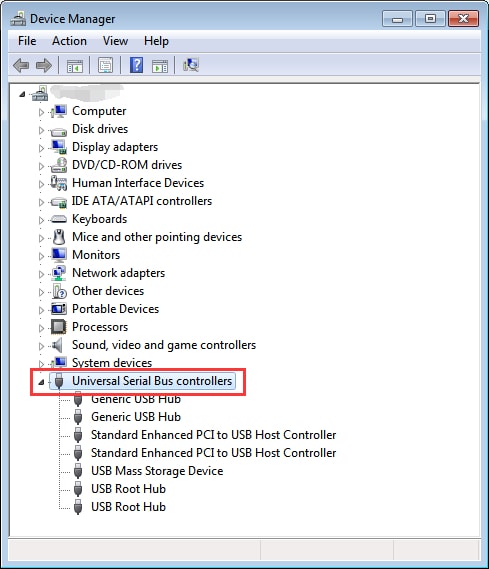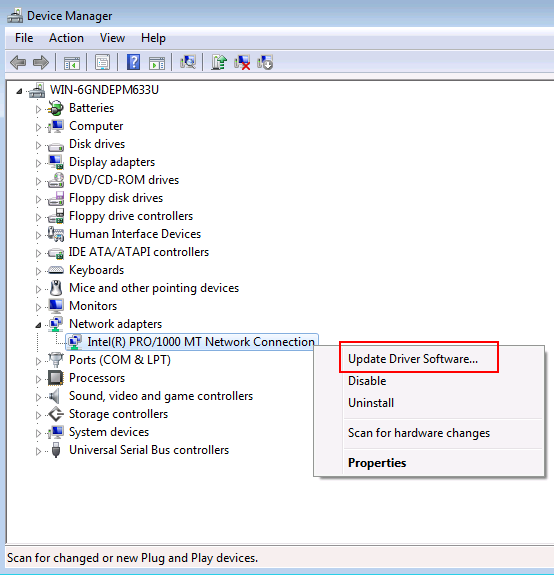
Intel Serial Bus Controller Install Drivers For
Downloads: 19994 times Add a Comment on Intel USB 3.0 eXtensible Host Controller Driver Comments Screenshots for Intel USB 3.0 eXtensible.This reference section describes the driver programming interfaces that are included in the Windows Driver Kit (WDK). This device driver pack will install drivers for Intel USB 3.0 eXtensible Host Controller Driver for the Windows Server 2008 R2 operating system.This driver is also compatible with the following products:Intel USB 3.0 eXtensible Host Controller Driver.Requires: Win 7. Download Latest Version for Windows.
At the 'Finish' screen, click 'Finish'. At the 'License Agreement' dialog, read the agreement, then, if you agree, click 'I Agree' to continue with the installation. These include export functions that the drivers can call, callback routines that the driver can implement, I/O requests that the driver can send to the Microsoft-provided USB driver stack, and various data structures that are used in those requests.At the 'Intel Chipset Driver Ver.


IOCTL_USB_GET_NODE_CONNECTION_DRIVERKEY_NAME IOCTL_USB_GET_NODE_CONNECTION_ATTRIBUTES IOCTL_USB_GET_DESCRIPTOR_FROM_NODE_CONNECTION IOCTL_INTERNAL_USB_UNREGISTER_COMPOSITE_DEVICEUser-Mode IOCTLs sent by applications and servicesUSB client drivers receive these user-mode I/O control requests at the kernel level: IOCTL_INTERNAL_USB_SUBMIT_IDLE_NOTIFICATION IOCTL_INTERNAL_USB_REQUEST_REMOTE_WAKE_NOTIFICATION
In that scenario, the controller on the device operates in the function role. A mobile device can behave as a peripheral when it is connected to a PC, allowing you to transfer files between your PC and the mobile device. These controllers are common on mobile devices and allow for connections to PCs, as well as USB peripherals like keyboards and mice. IOCTL_USB_GET_PORT_CONNECTOR_PROPERTIESA USB driver for a dual-role controller can behave as a host controller or a function controller depending on the hardware to which it is connected. IOCTL_USB_GET_NODE_CONNECTION_INFORMATION_EX_V2 IOCTL_USB_GET_NODE_CONNECTION_INFORMATION_EX
Dual-role controller driver headersEmulated host controller driver referenceWindows drivers can present non-USB devices as emulated USB devices. Dual-role controller driver programming guideFor information about enabling a Windows system for USB dual-role support, see USB Dual Role Driver Stack Architecture. For more information about the WDF class extension-client driver model, see Ursdevice.h. When writing the driver, use the WDF class extension-client driver model.
The UDE client driver communicates with Udecx by using a set of methods and event callback functions to handle device requests and notify the class extension about various events. This driver is referred to as the UDE client driver.The driver pair loads as the FDO in the host controller device stack. The client driver is written by an IHV/OEM. This is an in-box driver included Windows 10. USB device emulation class extension (UdeCx). The class extension and the client driver represent an emulated host controller with a root hub that is capable of presenting an attached device to the system as an USB device.
Certain class drivers are included in Windows, such as MTP and IpOverUsb. The class driver handle requests issued by user mode services, or it can forwards requests to USB function class extension (UFX) and its function client driver. Emulated host controller headersA USB function class driver implements the functionality of a specific interface (or group of interfaces) on the USB device.
In that case, your class driver must be paired with the system-supplied class driver, Generic USBFN. Alternatively, you may implement it as a user-mode service. The class driver may be implemented as a kernel-mode driver by using Windows Driver Frameworks (WDF). If a particular interface or functionality is not provided by a system-supplied driver, you might need write a function class driver.

Host controller driver programming guideDeveloping Windows drivers for USB host controllers Host controller driver headersWindows 10 introduces support for the new USB connector: USB Type-C. UCX serves as an abstracted interface to the rest of the Microsoft USB 3.0 stack, queues requests to the client driver, and performs other tasks.If you are developing an xHCI host controller that is not compliant with the specification or developing a custom non-xHCI hardware (such as a virtual host controller), you can write a host controller driver that communicates with the UCX class extension. The client driver handles hardware operations and events, power management, and PnP events. Within the Microsoft USB Driver Stack Architecture, UCX provides functionality to assist a host controller client driver in managing a USB host controller device.


 0 kommentar(er)
0 kommentar(er)
